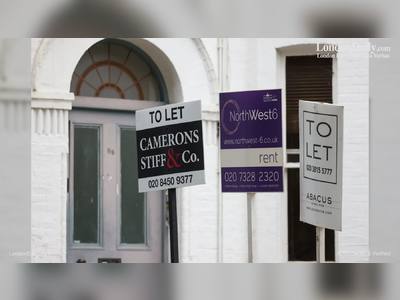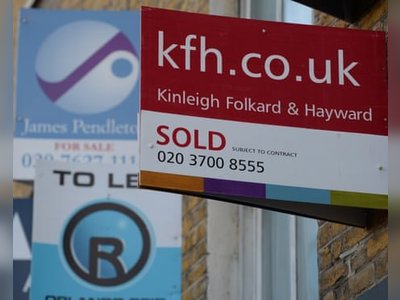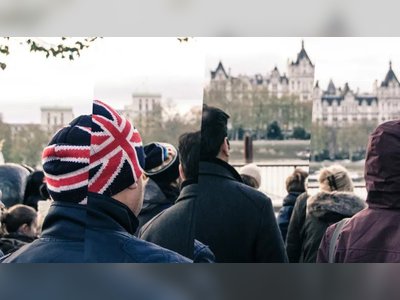
UK Environmental Protesters Subjected to Extremism-Style Licence Conditions on Release
Peaceful climate activists released from prison in the UK face restrictive conditions normally applied to extremist offenders
A number of environmental protesters in the United Kingdom have been released from prison on licence under restrictions typically reserved for extremist offenders.
Among them is 22-year-old Ella Ward, jailed after a blockade at Manchester Airport, who was initially banned from attending any meetings or gatherings – except worship – without permission from her probation officer.
The condition falls under a category that the HM Prison & Probation Service (HMPPS) classifies as “specific extremism-related conditions … which are restricted to those types of cases.”
Ward was also prohibited from contributing directly or indirectly to any website and from associating with anyone currently or formerly linked to protest groups.
After bringing a legal challenge, the Ministry of Justice (MoJ) dropped both conditions.
However, the case reveals that others involved in climate activism are subject to similar conditions and remain unable to speak publicly because of parallel restrictions impeding freedom of expression.
The imposition of conditions that HMPPS policy states are intended for gang- or extremist-related offenders has raised concerns among legal advocates.
One solicitor representing Ward described the application of these measures to peaceful protesters as “concerning … the government is using powers that should be reserved for extremist offenders to control and monitor the actions of those involved in peaceful protest”.
The MoJ has stated that non-standard licence conditions are regularly reviewed and may be relaxed if they are no longer necessary, but it did not directly address whether the extremism category was appropriately applied.
The broader context of this development includes a surge in arrests and heavy sentences for demonstrators from groups such as Just Stop Oil who have been prosecuted for non-violent direct action.
Legal experts argue that using extremist-style conditions in protest cases may represent an overreach of state power and a significant restriction on the freedoms of association and expression protected under human-rights frameworks.
In Ward’s case, the restrictions were applied despite her being released under a curfew, required to live at her parents’ home and subject to electronic monitoring.
She commented that the constraints made her feel that “my freedoms were going to be restricted when I got out.” She described the conditions as “an extension of the punishment, as opposed to an actual attempt to manage risk or protect the community.” The case raises important questions about where the line is drawn between maintaining public order and preserving democratic rights for peaceful political dissent.
Among them is 22-year-old Ella Ward, jailed after a blockade at Manchester Airport, who was initially banned from attending any meetings or gatherings – except worship – without permission from her probation officer.
The condition falls under a category that the HM Prison & Probation Service (HMPPS) classifies as “specific extremism-related conditions … which are restricted to those types of cases.”
Ward was also prohibited from contributing directly or indirectly to any website and from associating with anyone currently or formerly linked to protest groups.
After bringing a legal challenge, the Ministry of Justice (MoJ) dropped both conditions.
However, the case reveals that others involved in climate activism are subject to similar conditions and remain unable to speak publicly because of parallel restrictions impeding freedom of expression.
The imposition of conditions that HMPPS policy states are intended for gang- or extremist-related offenders has raised concerns among legal advocates.
One solicitor representing Ward described the application of these measures to peaceful protesters as “concerning … the government is using powers that should be reserved for extremist offenders to control and monitor the actions of those involved in peaceful protest”.
The MoJ has stated that non-standard licence conditions are regularly reviewed and may be relaxed if they are no longer necessary, but it did not directly address whether the extremism category was appropriately applied.
The broader context of this development includes a surge in arrests and heavy sentences for demonstrators from groups such as Just Stop Oil who have been prosecuted for non-violent direct action.
Legal experts argue that using extremist-style conditions in protest cases may represent an overreach of state power and a significant restriction on the freedoms of association and expression protected under human-rights frameworks.
In Ward’s case, the restrictions were applied despite her being released under a curfew, required to live at her parents’ home and subject to electronic monitoring.
She commented that the constraints made her feel that “my freedoms were going to be restricted when I got out.” She described the conditions as “an extension of the punishment, as opposed to an actual attempt to manage risk or protect the community.” The case raises important questions about where the line is drawn between maintaining public order and preserving democratic rights for peaceful political dissent.










